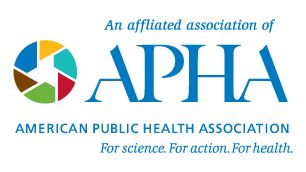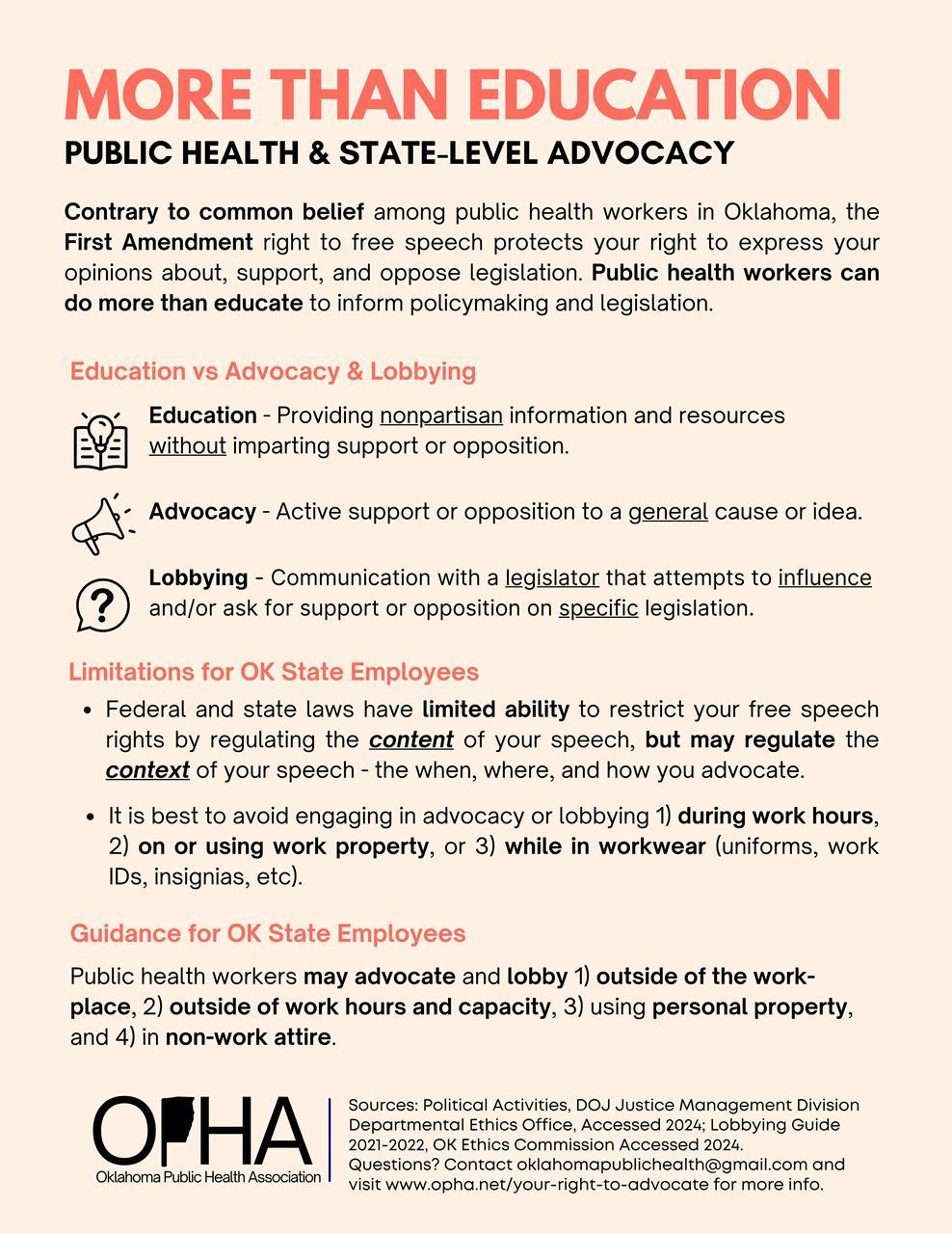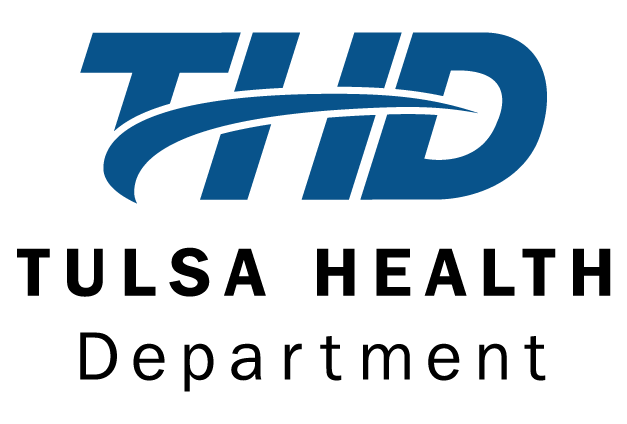YOUR RIGHT TO ADVOCATE
The Oklahoma Public Health Association is actively working to educate and empower public health practitioners and students in Oklahoma to advocate for public health. Though contrary to what many public health professionals in Oklahoma believe, public health workers - including state employees - have a right to advocate and lobby! Please find resources and guidance on your right to advocate below.
Advocacy & Lobbying Guidance
Public health professionals have a right to advocate! The first Amendment right to “freedom of speech” protects your right to express your beliefs, which includes expressing opinions on a political campaign or issue. In general, federal and state laws have very limited ability to restrict your free speech rights by regulating the content of what you say. However, it is much more accepted for laws to regulate the context of speech -- when, where, and how you express yourself.
- If you are a local government employee in Oklahoma, you have an explicit right to express your political beliefs outside work hours and not in uniform, as stated in 11 OK Stat. §11-22-101.1.
...with some limitations. The Hatch Act is a federal law that restricts the context of certain kinds of political advocacy. It forbids federal employees from engaging in advocacy “political activity” while on job: during working hours, while at their work location, or while wearing clothing that shows their official title.
While the Hatch Act is a federal law, it does have a section that limits what state employees may do.An officer or employee of a state, D.C., or local agency is subject to the Hatch Act if any of the employee’s regular duties of the job are financed by federal funding, in full or part. Any employees whose job activities are fully federal funded also cannot run for election for a partisan office.
Oklahoma’s Administrative Code 340:2-1-4 is a state law that echoes much of the language of the Hatch Act.
- It forbidsall state human services employees, not just those who are subject to the Hatch Act, from engaging in political activity while on the job, or while “officially in work status for the agency.”
- It also references the Hatch Act by reminding us that in some cases, state employees are even more restricted based on their work activities’ federal funding status, and would then need to look to the Hatch Act language to understand those restrictions.
- It is unclear how a court in Oklahoma would define “political activity,” but one way to think about it is that campaigning, political activity, and political commentary would all apply to activities taken to advocate for or against a particular partisan political candidate, political party, or piece of legislation, rather than broader advocacy, which could include more generalized efforts to provide information and education about particular public health issues.
What exactly is limited? Both the Hatch Act and the Oklahoma Administrative Code restrict government employees (at different levels) from engaging in political activitywhile on work property, during work hours, operating work equipment, or wearing work uniforms. The Hatch Act explicitly states that employees may still engage in political activity advocacy outside of work hours.
- Although the Oklahoma Administrative Code does not state this clearly (which is most likely on purpose) it does not (and should not) remove that right, which is a constitutional free speech right that is guaranteed by the First Amendment.
Whether you are subject to the state code, the Hatch Act, or both, it is best to avoid the following activities, which come from DOJ Hatch Act guidelines:
(1) No partisan political activity while on duty, in a federal facility, wearing a uniform or official insignia, or using a government vehicle. Examples include:
- may not wear political buttons/T shirts/signs
- may not display/distribute campaign materials
- may not perform campaign-related chores
- may not make political contributions
- may not post a comment to a blog or social media site advocating for or against a partisan political party, candidate for partisan political office, or partisan political group
- may not use any email account or social media to distribute, send, or forward content that advocates for or against a partisan political party, candidate for partisan political office, or partisan political group
(2) No soliciting, accepting or receiving political contributions at any time, and
(3) No use of official authority or influence, including use of official title, to affect the result of an election.
What about social media use? Whether you are subject to the state code, the Hatch Act, or both, it is best to follow the social media Hatch Act guidelines below. (Fully funded federal employees have stricter restrictions, see the Hatch Act guidelines):
- Social media accounts such as Facebook, LinkedIn, and Twitter can have your official title on your profile/intro page, but not elsewhere.
- Any “liking” or following of political accounts or groups on social media must occur outside of the workplace and outside of work hours.
Distinguishing Advocacy, Lobbying & Education
Oklahoma Public Health Association admin@okpublichealth.org | The Oklahoma Public Health Association (OPHA) is a nonpartisan 501(c)(3) nonprofit organization, EIN number 23-7159694. |  |














.png)






